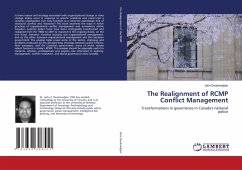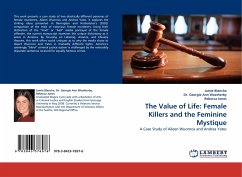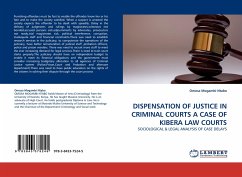
The Realignment of RCMP Conflict Management
Transformations in governance in Canada's national police
Versandkostenfrei!
Versandfertig in 6-10 Tagen
52,99 €
inkl. MwSt.

PAYBACK Punkte
26 °P sammeln!
Is there reason and strategy associated with organizational change or does change simply occur in response to specific problems and crises? Can a complex organization ever truly function as a coherent assemblage free of structural conflict and resistance? This book examines the ways in which practices of organizational conflict management and surveillance within Canada's national police force have been strategically transformed and realigned from the 1960s to 2001 to respond to the ongoing divide, on the one hand, between frontline policing and organizational management, and on the other, betw...
Is there reason and strategy associated with organizational change or does change simply occur in response to specific problems and crises? Can a complex organization ever truly function as a coherent assemblage free of structural conflict and resistance? This book examines the ways in which practices of organizational conflict management and surveillance within Canada's national police force have been strategically transformed and realigned from the 1960s to 2001 to respond to the ongoing divide, on the one hand, between frontline policing and organizational management, and on the other, between organizational management and the Canadian government. The analysis helps reveal some of the tactics, strategies and problems produced by the decades-long interplay between police officers, their managers, and the Canadian government, many of which remain salient features in today's RCMP. This analysis should be especially useful to students, scholars, professionals and anyone else interested in policing, management, conflict resolution, and liberal governance more broadly.












